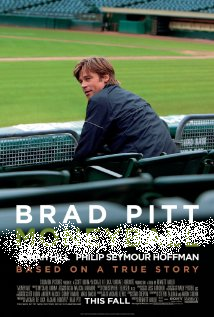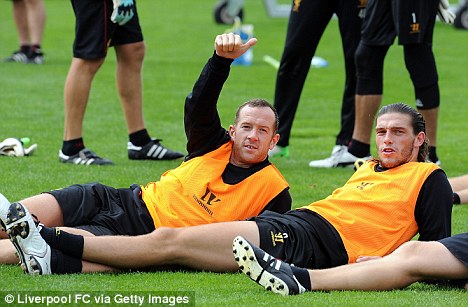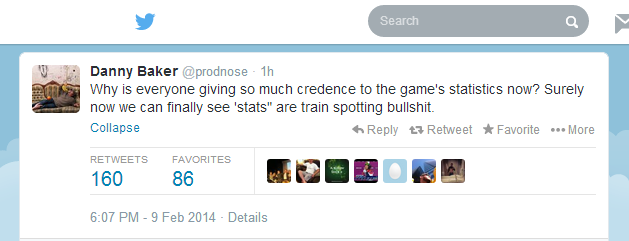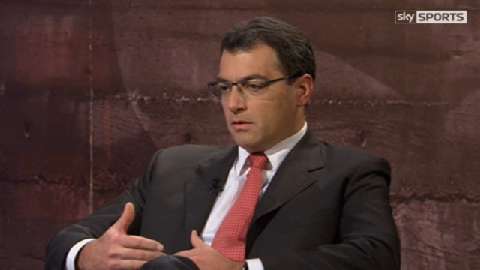M******** (a.k.a “The Scottish Play”)
“Sometimes what doesn’t happen can be just as important as what does”
(Chris Anderson, Footballers Football Show, 2013)

Last week I had the good fortune of being invited to present at the inaugural OptaPro Analytics Forum. This forum featured many interesting guests from a wide variety of backgrounds, including representatives from professional clubs, getting together to talk about how numbers can be used to enhance our understanding of “the beautiful game”.
When contemplating the event later that evening it dawned on me that there had actually been a rather large elephant in the room . Just like superstitious Shakespearian actors, even though many interesting topics were covered, not a single speaker or audience member mentioned “the M-word”.
Statistics in sport hit the mainstream in 2011 when Brad Pitt starred as former Oakland Athletics’ general manager Billy Beane in “That Movie”. The film tells the story of how a down-on-its-luck, low budget baseball club achieved unprecedented success through the innovative use of statistics. The club’s success is primarily due to Beane (Pitt) and, in the Hollywood version, his hiring of a young stats whiz kid (Jonah Hill).
Around the same time “M********” was premiering, John W Henry was settling in to his new role as owner of Liverpool Football Club. Henry is also owner of the Boston Red Sox baseball team, had worked with Beane previously, and made no secret of his intention to try to implement a similar approach to building and running a “soccer” club.
One of Henry’s first moves was to appoint Frenchman Damian Comolli as “Director of Football Strategy”. Comolli had spoken before of his admiration for the work of people such as Beane, and was immediately given the remit of managing Liverpool’s recruitment strategy.
In the summer of 2011, Comolli oversaw an unprecedented signing spree:
Liverpool’s signings that season included Andy Carroll (£35m), Charlie Adam (£9m), Stewart Downing (£20m) and Jordan Henderson (£16m).
The 2011/12 season was a disaster. Despite winning the League Cup next to none of the signings paid off. Liverpool finished 8th in the Premier League and both Comolli and manager, Kenny Dalglish, were sacked soon after. It was not difficult to sense a feeling of satisfaction in many quarters that such a numbers driven “experiment” had failed.
What struck me from several discussions at the OptaPro Forum, was that many people who work in this fledgling analytics community now see it as part of their job to defend statistics in sport and rebuild the appetites of club owners and fans for such work.
Although there have been several positive developments recently – notably Chris Anderson and David Sally publishing The Numbers Game and Sky Sports devoting a whole episode of The Footballer’s Football Show to statistics (3rd December 2013) – there has been an undeniable sense of a stalling, despondency and collective banging of heads against brick walls.
Chris Anderson is a well-respected and thoughtful academic but it was perhaps unfortunate that his co-panellists on The Footballer’s Football Show were Sam Allardyce and our friend Mr Comolli. Allardyce speaks often of his admiration for statistics and video analysis, but the consistent lack of aesthetic appeal with which his teams often play is surely part of the reason that the phrase “playing the percentages” comes with such negative connotations.
A recent article for When Saturday Comes in the Guardian caused a stir with a scathing attack on the field, including such lines as “these people don’t deserve football” . Only last night journalist and radio DJ Danny Baker tweeted to his 300,000 followers "Surely now we can finally see 'stats' are train spotting bullshit".
Are Allardyce and Comolli really the best advert for football analytics?
"M********" is an adaptation of a 2003 book by Michael Lewis which, for me, is far more interesting than the movie. This book was a catalyst for an explosion of similar work in the US, whose major sports all seem more prepared to embrace such work than soccer. Indeed Henry himself is a confirmed speaker at the forthcoming MIT Sloan Sports Analytics Conference alongside such high profile figures as current Indianapolis Colts quarterback Andrew Luck .
However, in this country it is the juxtaposition of the sugar-coated Hollywood story and the failings of Comolli-era Liverpool with which most conversations about statistics in football both begin and end.
It seems the shadow of Charlie Adam looms large in more ways than one.
One analogy that sprung to my mind was the 2011 UK referendum on a proportional representation voting system (bear with me!). I, and many people I know, were advocates of such a system but I remember being not entirely satisfied with the actual proposal put forward by the Yes campaign. As such, I am sure many either abstained or actually voted to keep the current system. I personally voted Yes, not particularly because I liked the system for which I was voting – I just recognised that if the campaign was defeated this time the issue would likely not make its way back onto the political agenda in my lifetime.
Just because Liverpool was the first club to experiment with analytics and it failed, do we now write off the entire field of work for a generation?
It was therefore with some trepidation that I made my way to Birkbeck University this week – how would the forum play out? What would be the response from the army of mysterious and secretive “performance analysts” that the clubs had (almost) all sent? I personally envisaged one of two responses – either “Stats in football? Nonsense. What can you do for me? Tell me to sign Andy Carroll?” or maybe the polar opposite “Stats, brilliant, yes we have been doing that for years but we can’t possibly tell anyone, our managers would shoot us”.
Fortunately what actually transpired was a series of varied and interesting presentations across a wide variety of topics, with equally stimulating debate both during and after. My personal background is in the betting industry, but there were presentations from people in fields as varied as telecommunications, accountancy and theoretical biology. It was hugely rewarding for “outsiders” such as myself to have the opportunity to share our work.
In addition, much of the work was of a level that it was easy to envisage immediate and tangible benefits for clubs resulting from it.
Of particular interest were two presentations of work that is actually currently ongoing at two of the top clubs in the whole of Europe. Pedro Marques (1st team analyst at Manchester City) presented some of his and his colleagues work on visualising the nature and frequency of passing networks by forthcoming City opponents. This included not just detail on how they collect and look for patterns in the data, but also actual training ground footage of the coaching staff implementing their findings.
Also, representatives from Spanish telecommunications giant Telefonica presented some of the work they have done for none other than FC Barcelona on “Players’ pre- and post-pass movements” – that is, not only measuring what happens when players have the ball, but actually measuring players’ movements when they do not have the ball.
After the event, it was enlightening to talk with representatives sent from Liverpool FC (who were not, incidentally, part of the Comolli regime) about the challenges they faced in trying to rebuild the reputation of analytics at the club in the wake of its previous experience. I think this remains a challenge for the whole industry. A club requires the full and unstinting support of all stakeholders to have any kind of success with data analysis but the vision really has to come right from the top. They spoke positively of the support they continue to receive from John W Henry and, judging by recent performances at least, it seems that finally Henry’s faith could be on its way to being rewarded.
To see clubs of the stature of Liverpool FC, Manchester City and FC Barcelona put their weight behind data analytics should be a huge incentive for other clubs to make similar investments – and not just financial investments.
Personally, I found the forum immensely energising and I hope to be able to continue to do work in this field in the future.
Just don’t mention the M-word.





